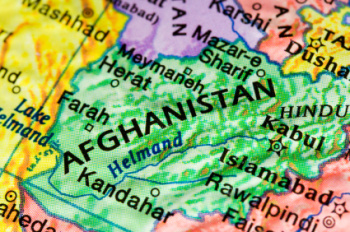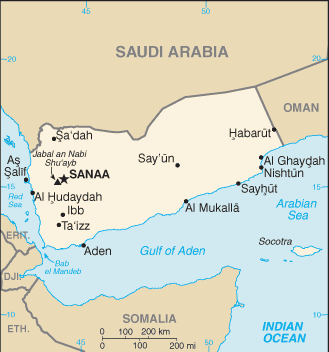Iraq......
http://www.businessinsider.com/us-selling-weapons-to-civil-war-iraq-2013-8
( Pentagon wants to sell 2.7 billion in weapons to Iraq - this despite Iraq's PM Maliki being aligned with Iran and therefore aligned with government of Syria - strange....)
The Pentagon is looking to bolster its military options for Syria's civil war by sending $2.7 billion in weapons to Iraq, despite the country being on the verge of civil war.
*****
http://www.zerohedge.com/news/2013-08-06/great-abu-ghraib-escape
http://www.businessinsider.com/us-selling-weapons-to-civil-war-iraq-2013-8
( Pentagon wants to sell 2.7 billion in weapons to Iraq - this despite Iraq's PM Maliki being aligned with Iran and therefore aligned with government of Syria - strange....)
The Pentagon is looking to bolster its military options for Syria's civil war by sending $2.7 billion in weapons to Iraq, despite the country being on the verge of civil war.
The weapons deal would include 681 Stinger anti-aircraft missiles and 40 truck-mounted launchers, as well as three Hawk anti-aircraft batteries with 216 Hawk missiles, according to Agence France Presse.
The sale is primarily viewed as a way to bolster a possible no-fly zone in Iraq, though it would also help to cut off Iranian supplies to Syria through Iraqi air space.
*****
http://www.zerohedge.com/news/2013-08-06/great-abu-ghraib-escape
The Great "Abu Ghraib" Escape
Submitted by Tyler Durden on 08/06/2013 23:09 -0400
How al Qaeda broke hundreds of bad guys out of the world’s most notorious jail -- and what it means for America.
On July 21, the temperature spiked to a sweltering 107 degrees in Baghdad -- brutal heat for the guards and prisoners inside Abu Ghraib's cement confines. Outside, among a patchwork of green farmland and dry brown fields, federal police and army troops -- packing AK-47s, PKC machine guns and sniper rifles -- were positioned throughout the terrain, which is dotted with Sunni farms and villages where insurgents had once launched a guerrilla war against U.S. troops. Within the walls of the infamous prison, the guards -- armed only with pepper spray and clubs -- were the last line of defense from would-be assailants.
At around 9 p.m. that night, as detainees were being counted on the way back to their cells after dinner, the mortars began to fall.
A barrage of more than 40 rounds hit the grounds in rapid succession -- some counted as many as 100 explosions. As guards and detainees scrambled for cover, two car bombs exploded outside, punching a hole in the walls of the massive prison compound.
More than 50 gunmen wearing tribal robes then entered the grounds, wielding pistols, AK-47s, and hand grenades. They had been on the road and in nearby villages, waiting to storm the facility. The power was cut, and the detainees broke out in cries of "God is great."
The gunmen opened fire on any officer they saw. "The prisoners rioted. Some burned mattresses and clothes, others had stored homemade explosives to hurl at the guards. The infiltrators handed weapons to their jailed comrades. There was screaming and chaos," one of the guards at Abu Ghraib recalled. "We were surrounded."
When the assault ended, 71 prisoners were dead but hundreds of hardened militants had been freed in a stunning attack by al Qaeda's local subsidiary. The exact number is still unclear: The Iraqi government estimated anywhere from 300 to more than 850 detainees, including some arrested by U.S. forces years ago, had been busted out. The fact that the Iraqi security apparatus still does not know exactly how many militants escaped is a stunning admission of incompetence -- and a testament to how badly it was knocked off balance by the assault.
...
Admission after admission has come out in the local media: 200 Sunni prisoners, some of them from al Qaeda, had been transferred to Abu Ghraib just days before the escape; prisoners had easy access to cell phones, so were able to communicate with the prison break plotters in the countdown to the escape.
...
It's not just this one prison break -- there are signs that militants are gaining momentum across the country. Iraq just witnessed its deadliest month since the end of its civil war in 2008: The United Nations announced last week that 1,057 Iraqis had been killed in July.
Al Qaeda's assaults are also becoming more sophisticated.
...
The Abu Ghraib prison break was not only a counterterrorism disaster, it laid bare Iraq's political dysfunction.
...
The Abu Ghraib prison break may be over, but its effects will reverberate around Iraq and the broader region for many months to come. The men who carried it out are still on the loose, ready to carry out more bombings, stronger than ever. The guards, meanwhile, marveled at the jihadists' confidence and cool.
"They seemed not to be in a rush, they were doing what they wanted, with no confusion," one guard said. "They knew what to do."
http://original.antiwar.com/updates/2013/08/06/57-killed-161-wounded-in-spate-of-iraq-bombings/
57 Killed, 161 Wounded In Spate of Iraq Bombings
by Margaret Griffis, August 06, 2013
With Ramadan winding down, Baghdad was again targeted in a series of coordinated, evening bombings. At least were 57 killed and another 161 were wounded there and across Iraq. One of the fatalities, a suicide bomber, was discovered to be a Saudi national.
In Baghdad, five people were killed and 18 more were wounded in a blast near Hurriya Square in Karrada. Eight people were killed and 21 more were wounded inNahrawan when a bomb exploded. A bomb killed five and wounded 17 in Doura. InThaalibh, a bomb killed four people and wounded 13 others. Three people were killed and 23 more were wounded during another blast in Zaafaraniya. Five people were killed and 15 more were wounded in a blast at a cafe in Husseiniya; a second bombkilled three and wounded 10 more. A bomb in Shabb left six wounded. Five people were killed and 16 more were wounded last night at an ice cream shop in Abu Dsheer.
Ten people were killed and 15 more were wounded in a blast in Anbakiya.
In Tuz Khormato, three al-Qaeda suspects were killed during a raid.
Two people were killed and four more were wounded in Saidiya when a bomb exploded near a home.
Gunmen killed a policeman at his sister’s home near Mosul. Another policeman was wounded in a bombing.
A policeman was shot dead in Falluja.
Security forces in Muqdadiya killed a Saudi suicide truck bomber.
Near Baquba, gunmen critically wounded a civilian.
A civilian was shot dead in Samarra.
In Shirqat, gunmen wounded a Sahwa member.
| |

 Calling it a “deceiving drama,” Mullah Omar insisted that the election was a “waste of time” and that instead the Taliban
Calling it a “deceiving drama,” Mullah Omar insisted that the election was a “waste of time” and that instead the Taliban
 Yemen as a whole is rarely particularly united, with the central government based in Sanaa and mostly controlling the area between there and the coasts. Everything else is tribal areas, where heavily-armed tribal militias have shown themselves capable of standing up to the Yemeni military when the situation requires. It was one of these conflicts that saw a Yemeni military
Yemen as a whole is rarely particularly united, with the central government based in Sanaa and mostly controlling the area between there and the coasts. Everything else is tribal areas, where heavily-armed tribal militias have shown themselves capable of standing up to the Yemeni military when the situation requires. It was one of these conflicts that saw a Yemeni military 
No comments:
Post a Comment